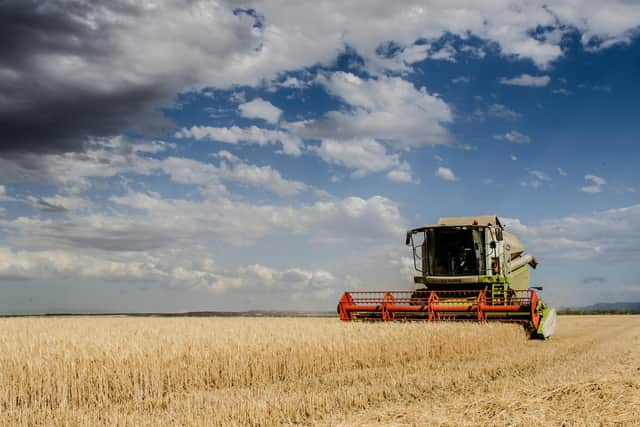Challenging weather blamed for drop in farming income
and live on Freeview channel 276
The survey, which covers a total of 20,000 acres of farmland in the region was carried out by accountants and business advisers, Duncan & Toplis.
They found the average net farm income for the 2020 harvest fell to £109 per hectare, down from £133 the year before.
Advertisement
Hide AdAdvertisement
Hide AdHowever, this 18 per cent fall was better than the 30 per cent predicted a year ago.


The main cause of the income reduction was the wet winter and flooding of 2019-20 which was followed by a very dry spring.
The flooding across parts of the East Midlands including north Nottinghamshire in late 2019 meant farmers were unable to drill much of their winter wheat, leaving large areas of land unused until spring crops could be planted.
Unfortunately, the dry spring which followed also meant difficult growing conditions, limiting yields further.
Advertisement
Hide AdAdvertisement
Hide AdMark Chatterton, head of agriculture at Duncan & Toplis said: “After 2016 saw one of the worst arable harvests in a decade, farms in our region saw net incomes rising over the following two years, reaching a peak of £163 per hectare in 2018.
"Since then however, incomes have decreased again after a series of tough growing seasons.
“While net income is still far better than the low-point in 2016, it has been a difficult year for many.
“Looking ahead to the 2021 harvest, I expect average yields to be below the five year average once again because weather patterns have not been favourable.
Advertisement
Hide AdAdvertisement
Hide Ad“I expect that farm gross margins for the upcoming harvest could be £50 per hectare higher at £677 per hectare, but net profits will depend on the ability for farms to control costs, particularly labour and machinery costs which should be kept below the ‘magic figure’ of £370 per hectare.
"This might be more difficult to achieve this year, because many investments will have been postponed due to the poor harvests of recent years and there may be new challenges in securing seasonal workers due to Covid-19 and Brexit.”